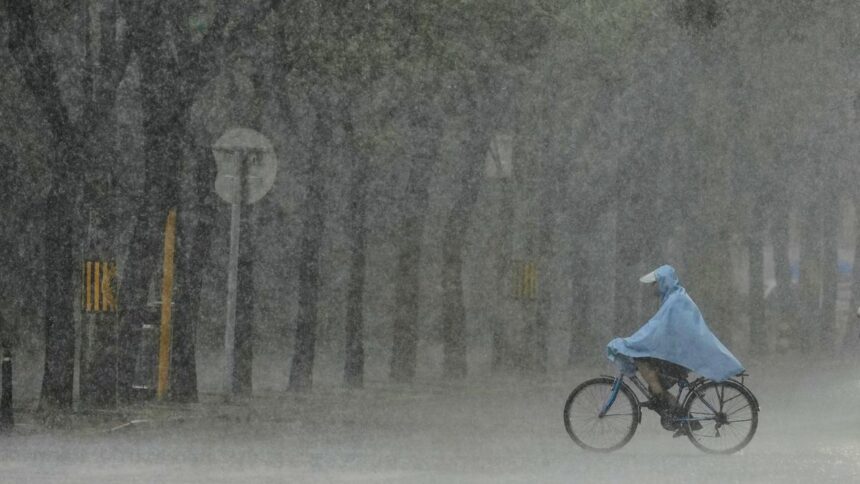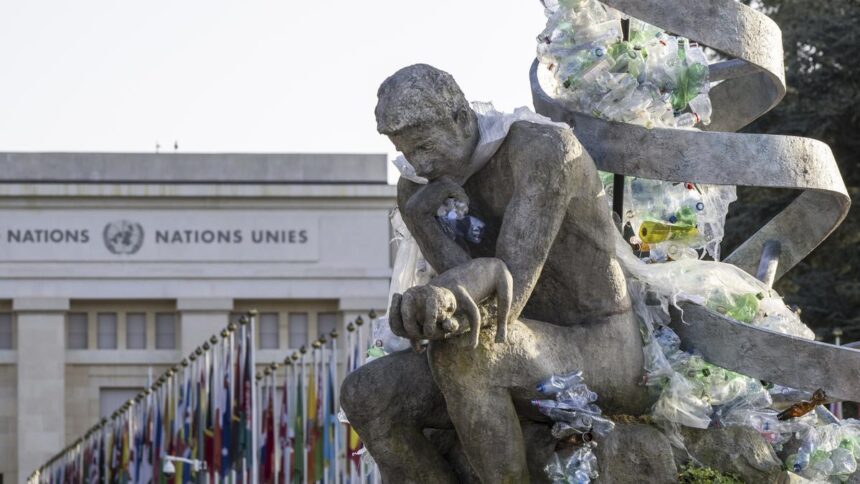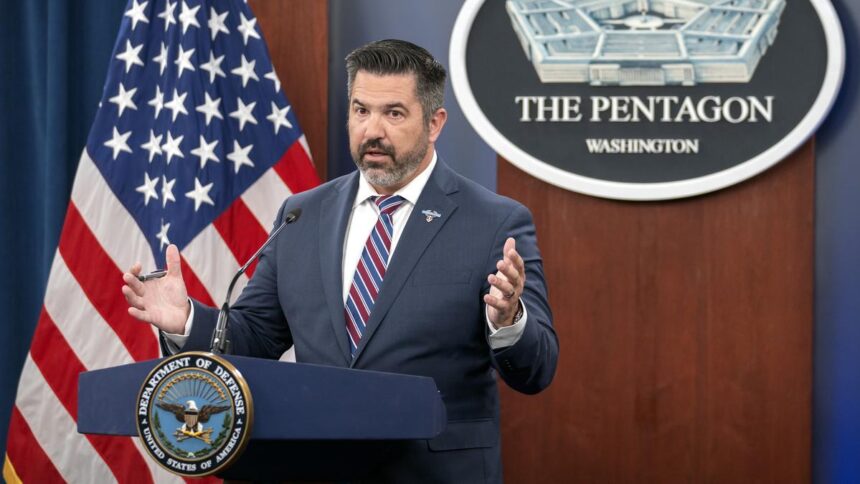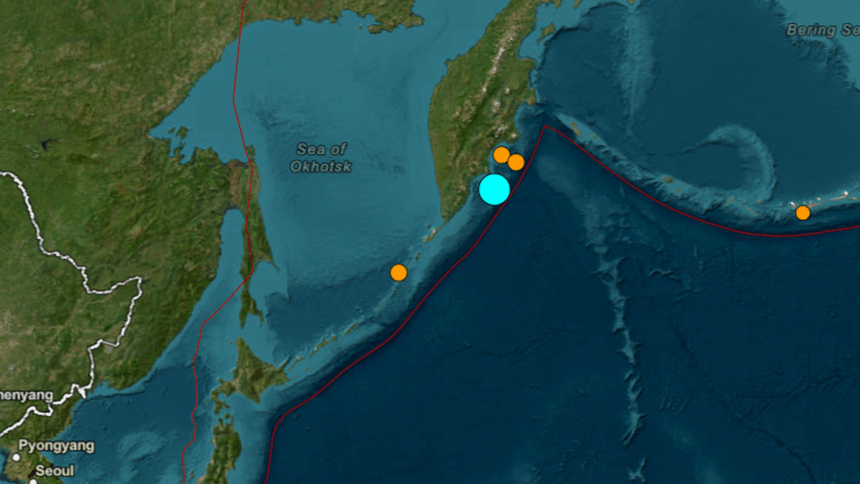Israeli Prime Minister Benjamin Netanyahu’s trip to Washington this week netted U.S. President Donald Trump another nomination for the Nobel Peace Prize he covets, but the ceasefire the U.S. leader sought for the war in Gaza didn’t emerge.
Despite Mr. Trump throwing his weight behind a push for a 60-day truce between Israel and Hamas, no breakthrough was announced during Mr. Netanyahu’s visit, a disappointment for a president who wants to be known as a peacemaker and has hinged his reputation on being a dealmaker.
“He prides himself or being able to make deals, so this is another test case,” said Rachel Brandenburg, the Israel Policy Forum’s Washington managing director and senior fellow.
Trump’s ability to strike a ceasefire deal in the 21-month war will reveal the boundaries of his influence with Netanyahu, especially after their recent joint strikes on Iran’s nuclear facilities that both leaders touted at the White House this week.
Beyond the back-to-back meetings Mr. Trump and Mr. Netanyahu had at the White House this week, there was little public evidence of progress at a time when the Republican U.S. president is pushing to end the fighting.
Secretary of State Marco Rubio said Thursday that when it comes to a ceasefire in Gaza, “we’re closer than we’ve been in quite a while and we’re hopeful, but we also recognize there’s still some challenges in the way.”
Rubio, who spoke to reporters while traveling in Kuala Lumpur, Malaysia, also said that Trump “wants to see a ceasefire and we’ve invested a lot of time and energy.”
Beyond ending the bloodshed, ending the war in Gaza would give Trump more leeway to strike some of the broader agreements he seeks in the Middle East, such as expanding the Abraham Accords that started in his first term and normalising relations with Syria’s new government.
“He wants to be the one who gets hostages home and sees the war in Gaza end so he can move on to some of these bigger deals,” Brandenburg said.
Even if a truce is reached, Netanyahu has promised fighting will continue if necessary until Hamas is destroyed. The militant group, meanwhile, has conditioned the release of the remaining hostages on Israel’s withdrawal from Gaza, a stipulation Israel has been unwilling to accept.
It’s unclear how much pressure Mr. Trump put on Mr. Netanyahu in their private talks this week. But the two leaders came into the visit seeming more aligned than ever — at least for now — fresh off the president having twice come to the Israeli leader’s assistance.
Mr. Trump made the risky move to join Israel’s attacks on Iran last month, delivering pivotal U.S. firepower while alarming world leaders and some of Trump’s “America first” supporters. Mr. Trump also inserted himself into Israel’s domestic affairs, calling for Netanyahu’s yearslong corruption trial to be thrown out.
That’s a marked turnaround in their relationship, which had appeared somewhat strained in recent years.
Mr. Trump shocked some of his fellow Republicans and staunch supporters of Israel by publicly criticising Netanyahu not long after Hamas attacked Israel on Oct. 7, 2023, setting off the conflict.
He said that Netanyahu “was not prepared” for the attack from Hamas and that Netanyahu had “let us down” just before the U.S. killed top Iranian general Qassem Soleimani in 2020.
Even during his last visit to the White House earlier this year, Mr. Netanyahu seemed caught off guard when Mr. Trump announced the U.S. would hold talks with Iran over its nuclear deal rather than embrace Mr. Netanyahu’s push for military pressure.
With their military objectives aligning for a time on Iran, the Israeli leader has worked to foster a warmer relationship.
In a video he released after the U.S. strikes, Netanyahu spoke — in English instead of Hebrew — of the “unshakeable alliance” between their countries while repeatedly praising Trump.
“His leadership today has created a pivot of history that can help lead the Middle East and beyond to a future of prosperity and peace,” Mr. Netanyahu said.
In his visit to Washington this week, the Israeli leader also showed he knows how to praise the president in a way that matters greatly to him when he unveiled a letter in front of reporters and cameras to announce he had nominated him for a Nobel Peace Prize.
Those gestures, though, may only carry him so far as Mr. Trump pushes for a deal that Mr. Netanyahu may not be able to accept.
“I think if Netanyahu stands in the way too much for too long of the sort of loftier objectives Trump has set out for himself,” Brandenburg said, “Netanyahu will be cast aside as more of a problem than an asset.”
Mr. Netanyahu, like many Israelis, believes Mr. Trump is the greatest friend they have ever had in the White House and is deeply grateful for the U.S. strikes on Iran’s nuclear sites last month.
But the Israeli leader is also under mounting public pressure to end the war as hostages languish in captivity and more Israeli soldiers are killed in guerrilla-style attacks.
Israel’s military success against Iran has given him some political capital, but if he ends the war while leaving Hamas intact, he will have broken his repeated promise of “total victory.”
His far-right coalition partners have threatened to bolt if he does that, sparking early elections that could end his nearly unbroken 16 years in power and leave him more vulnerable to long-standing corruption charges.
Published – July 11, 2025 06:29 pm IST





















